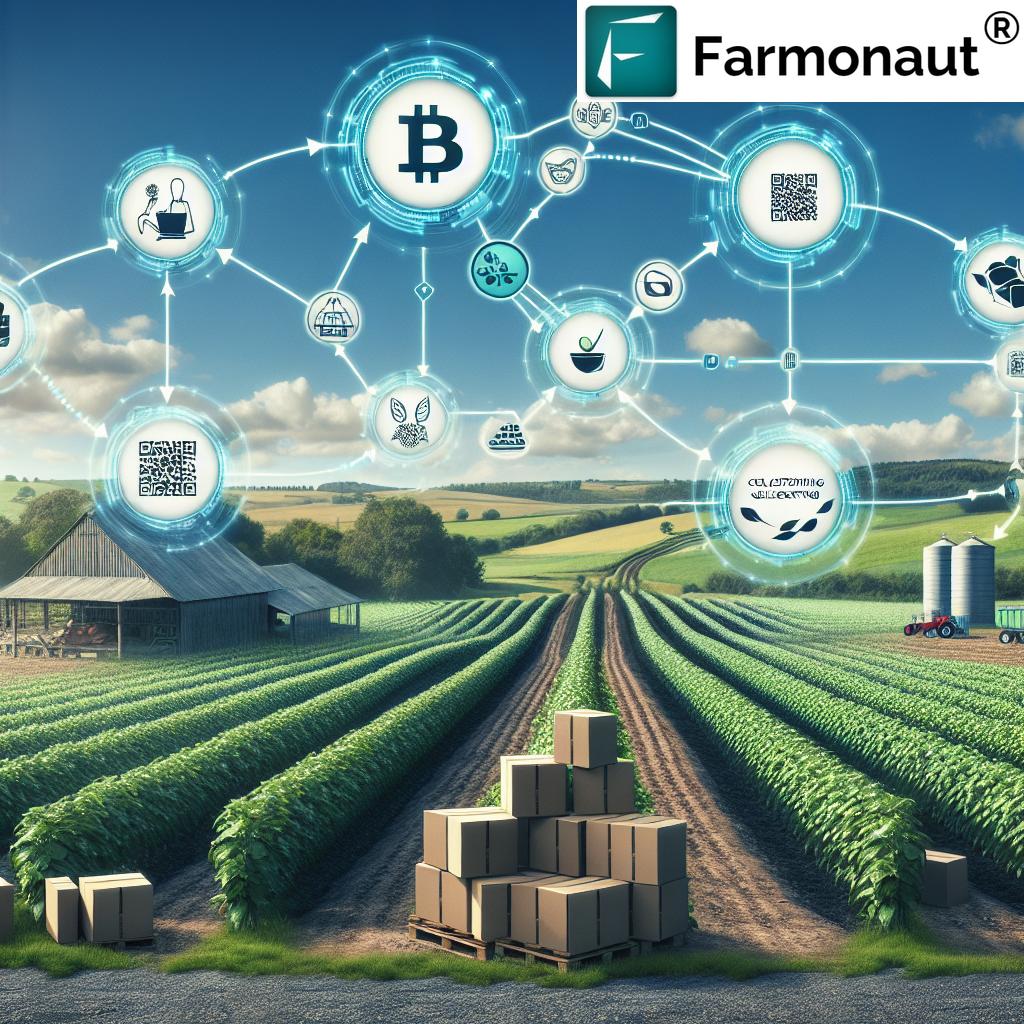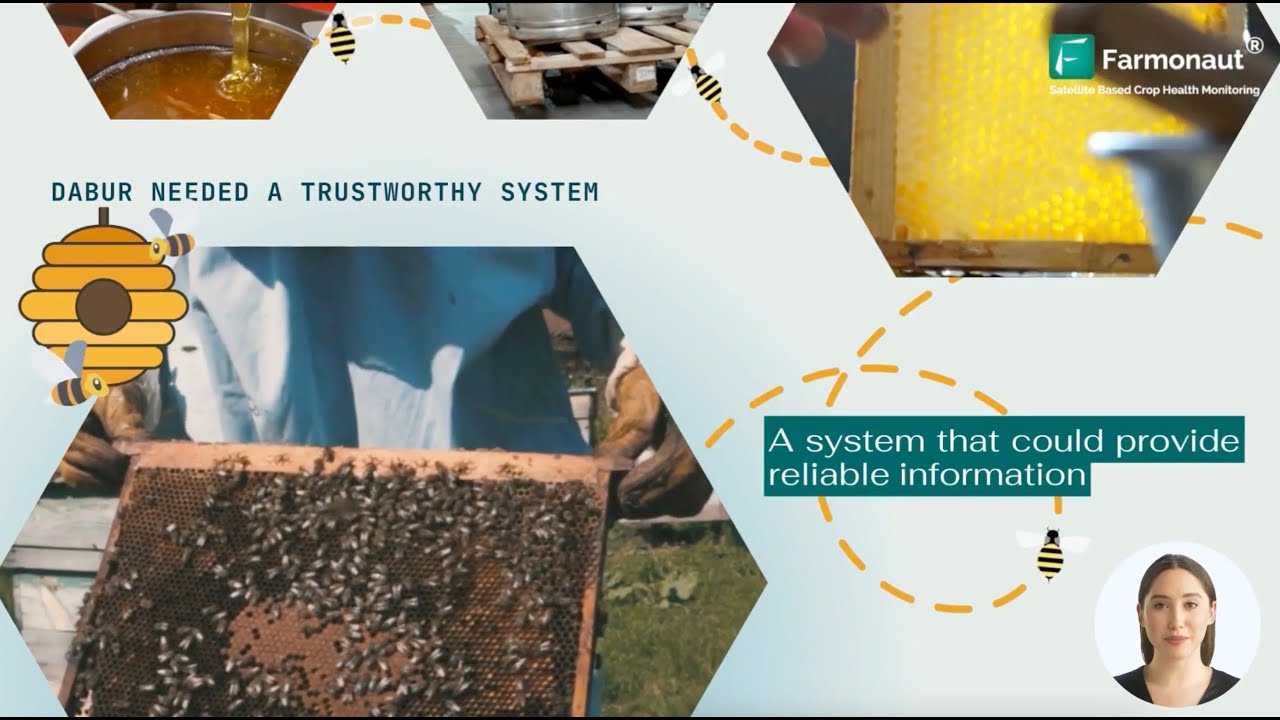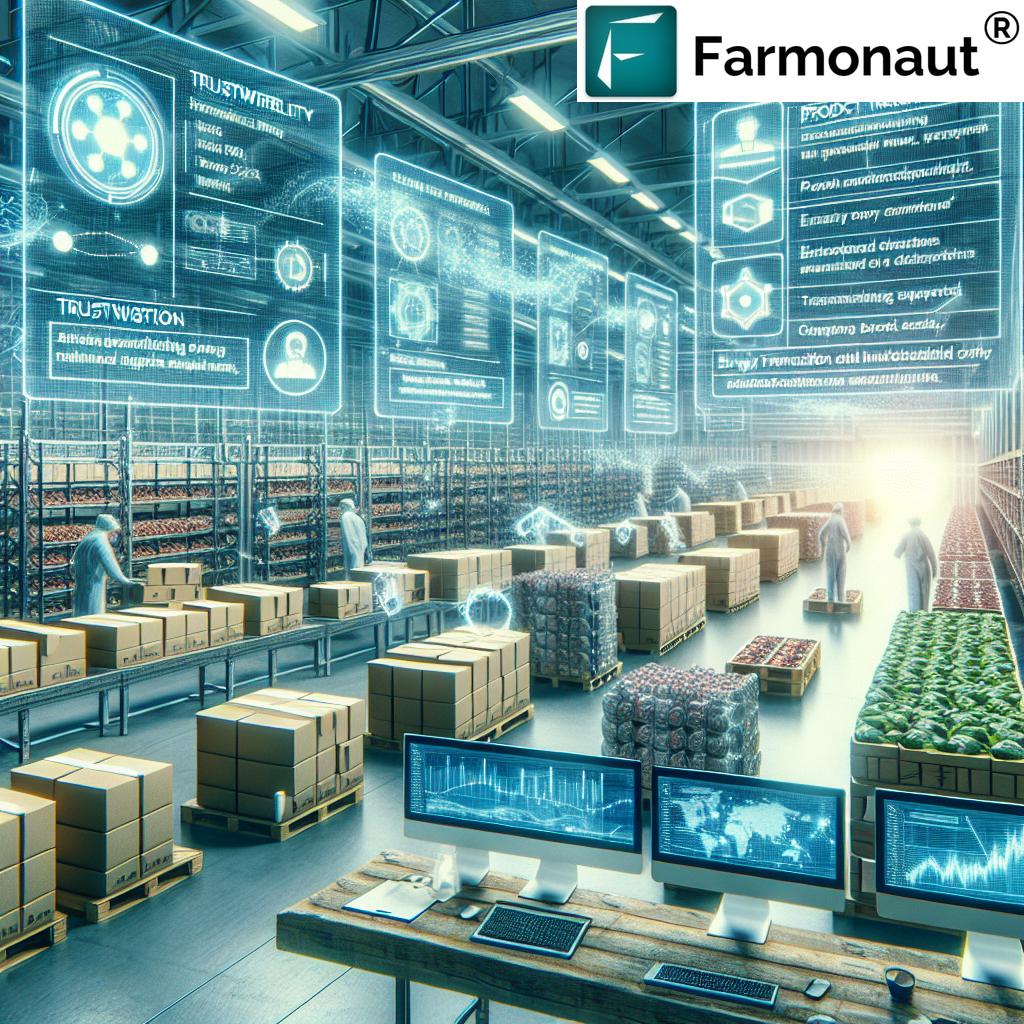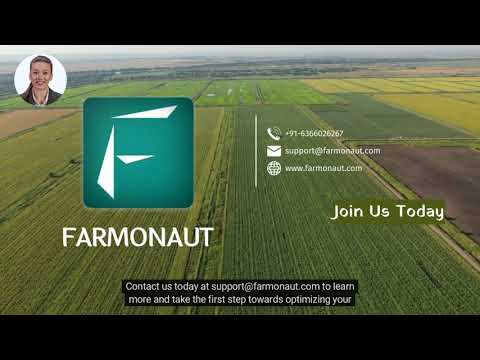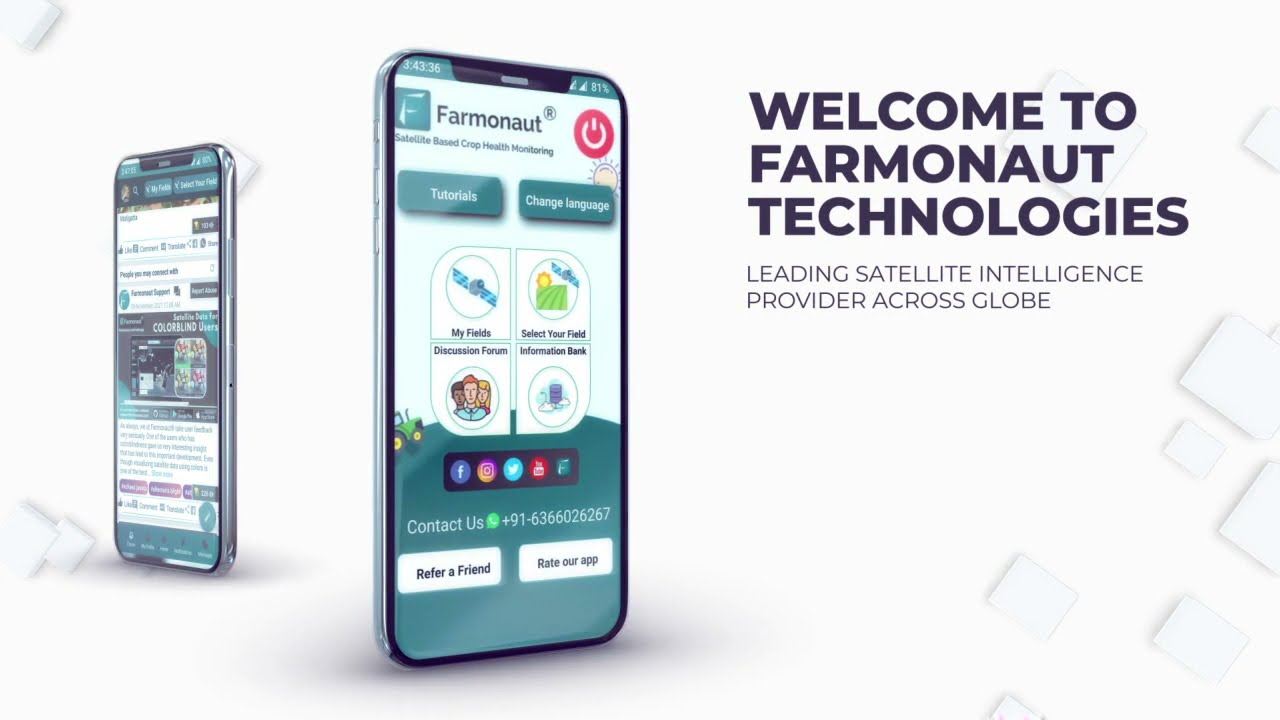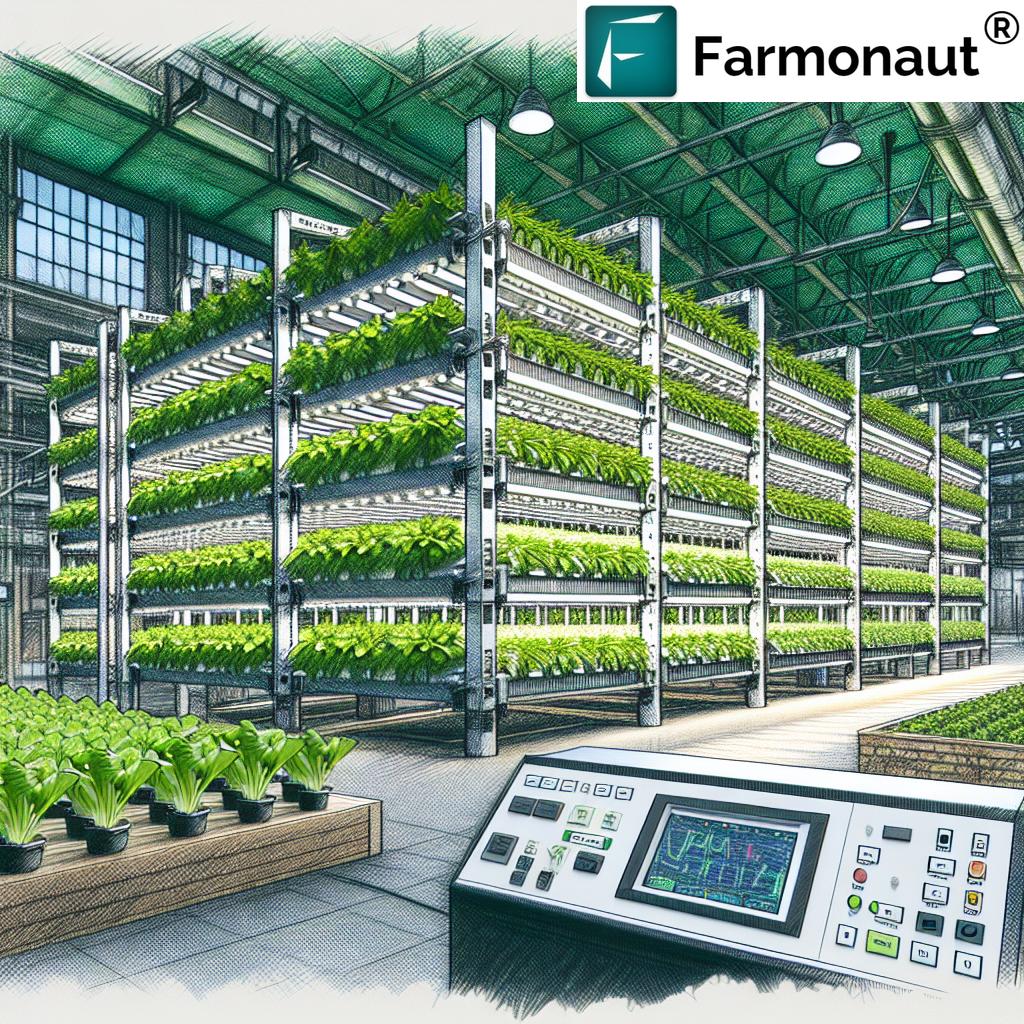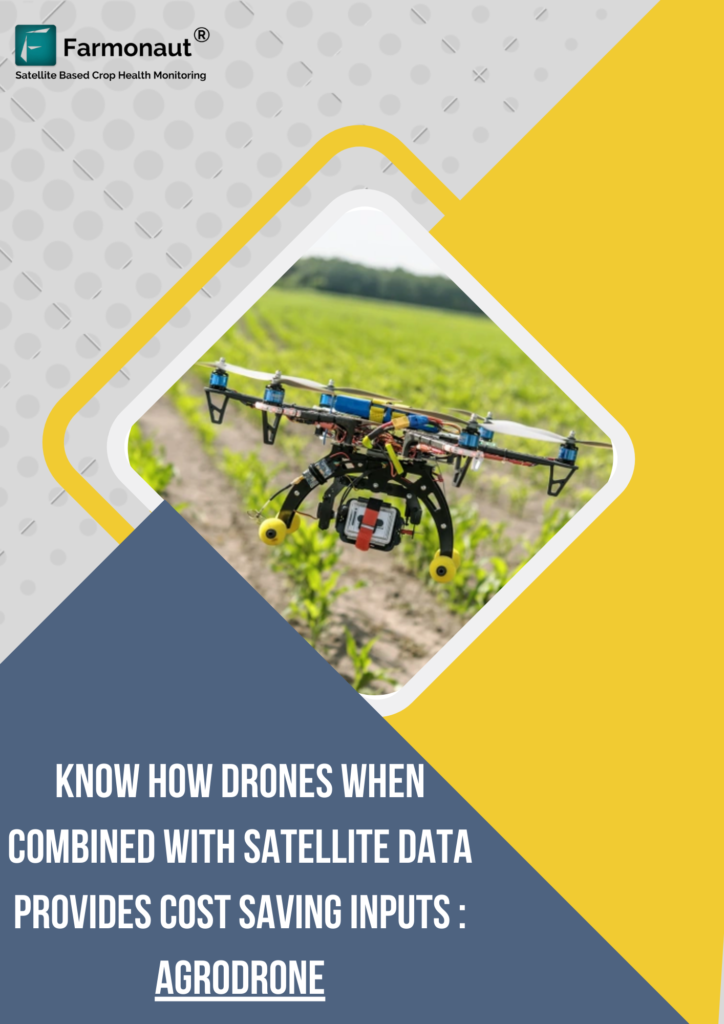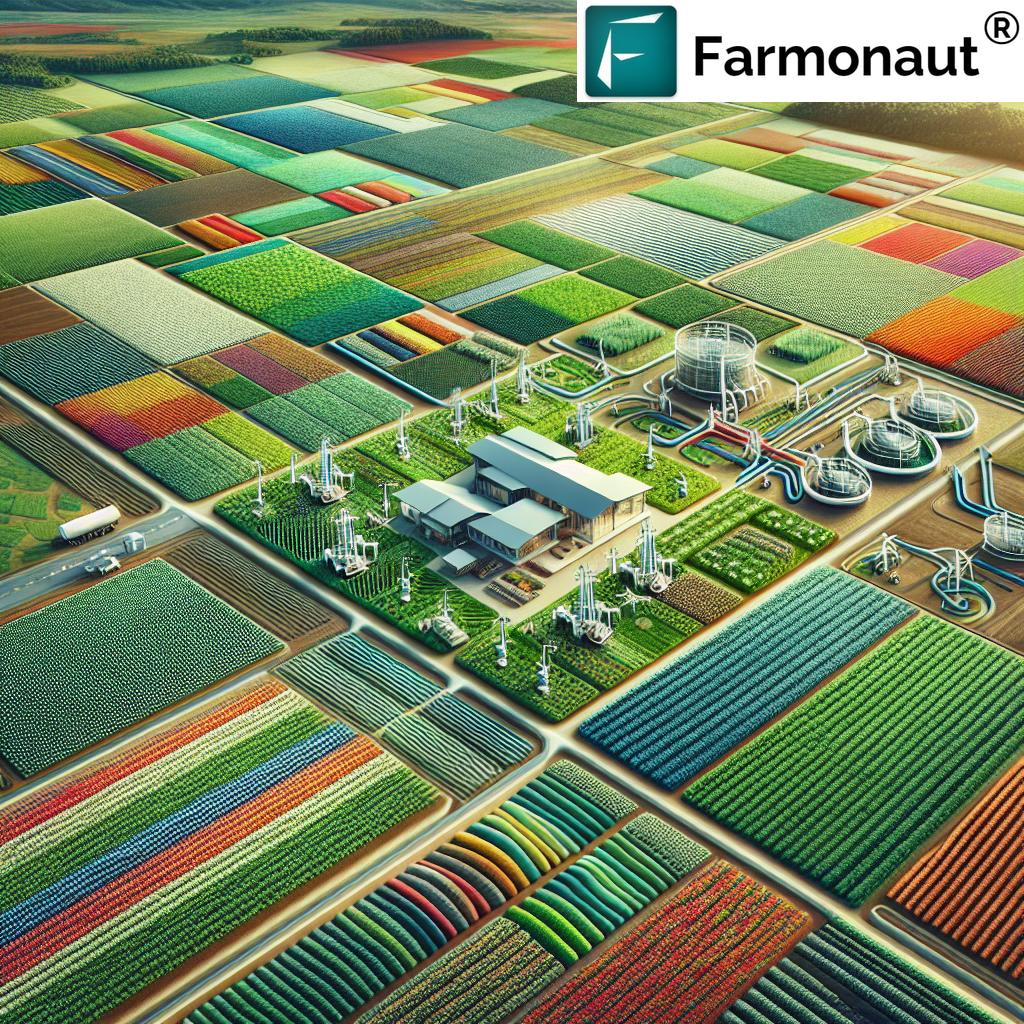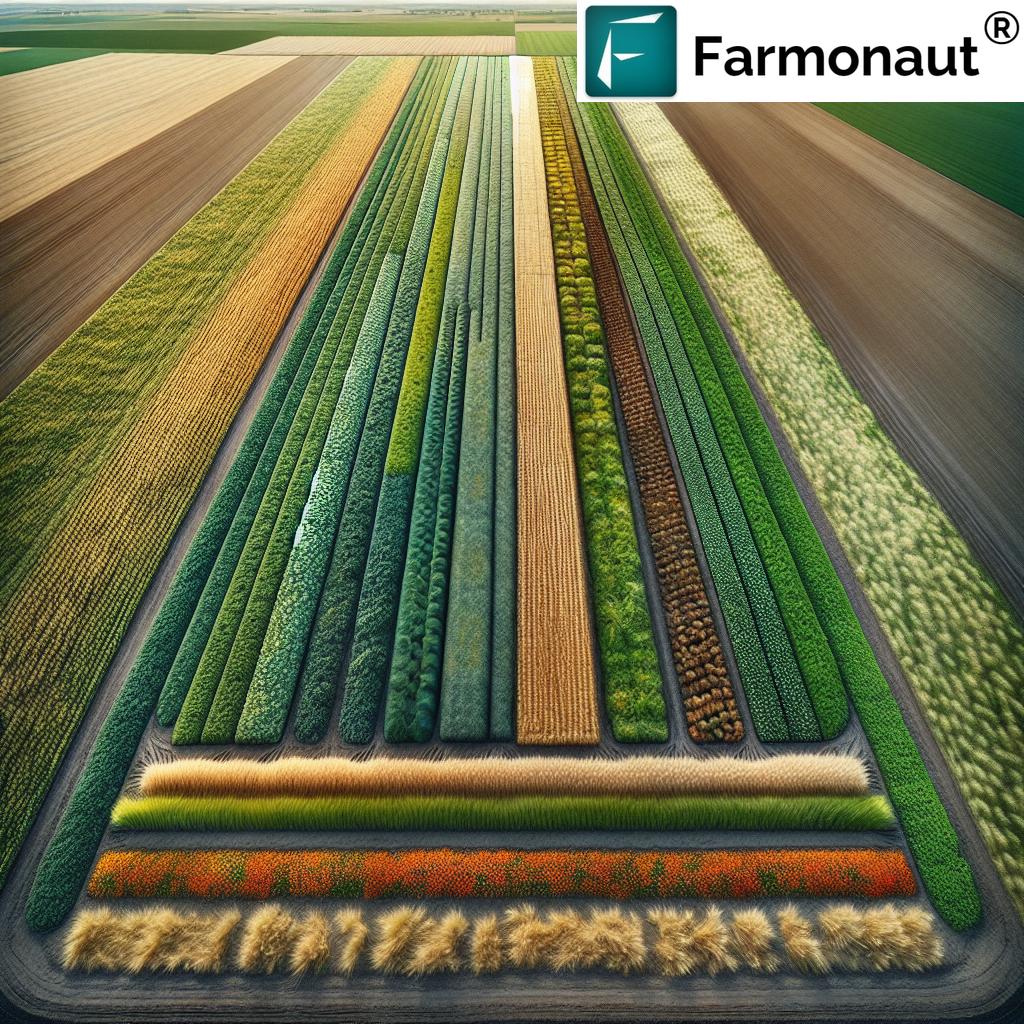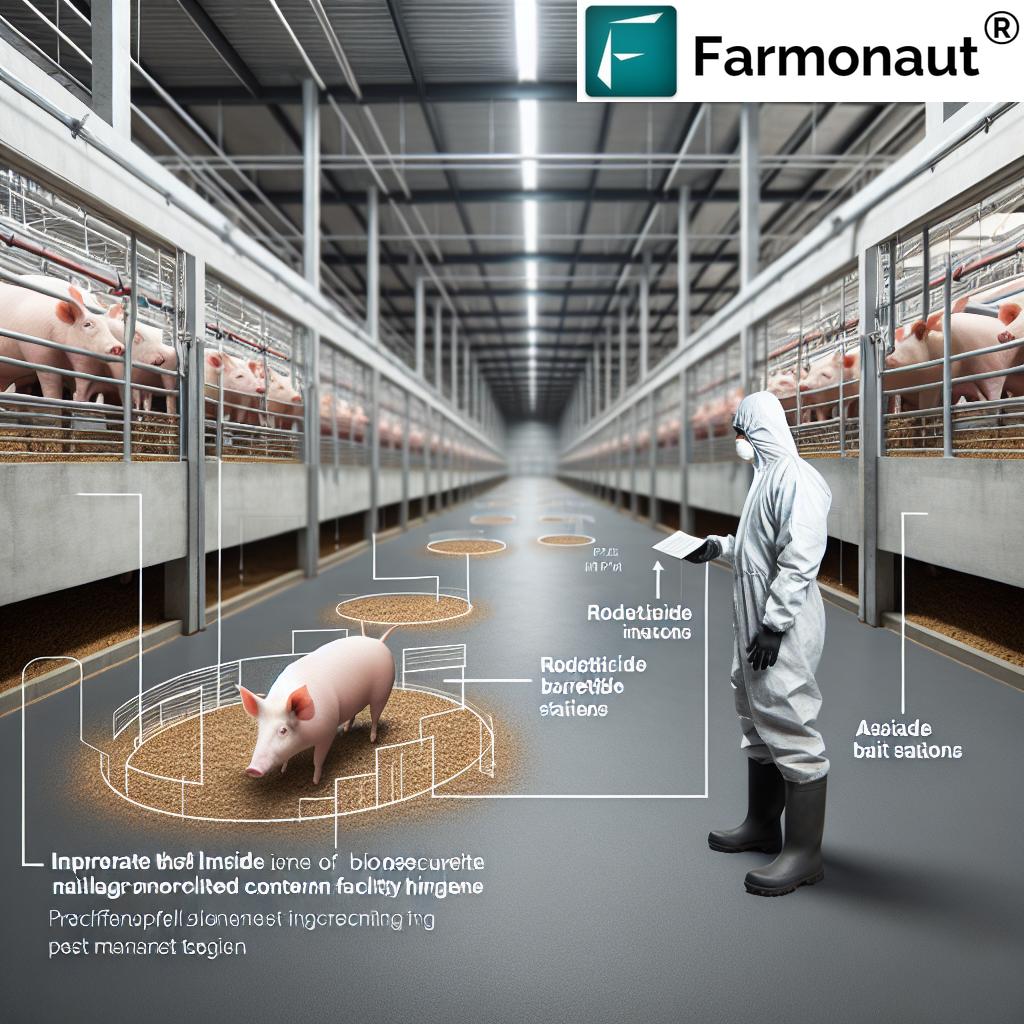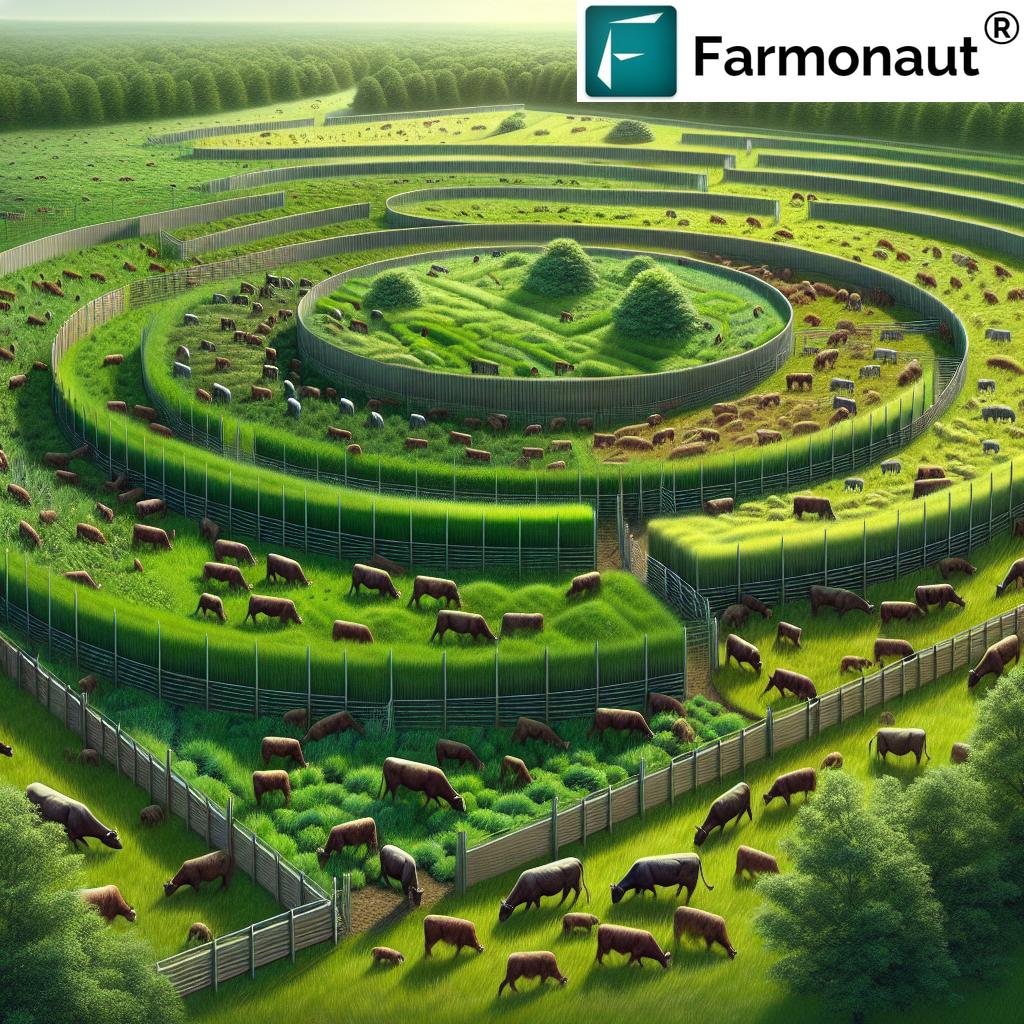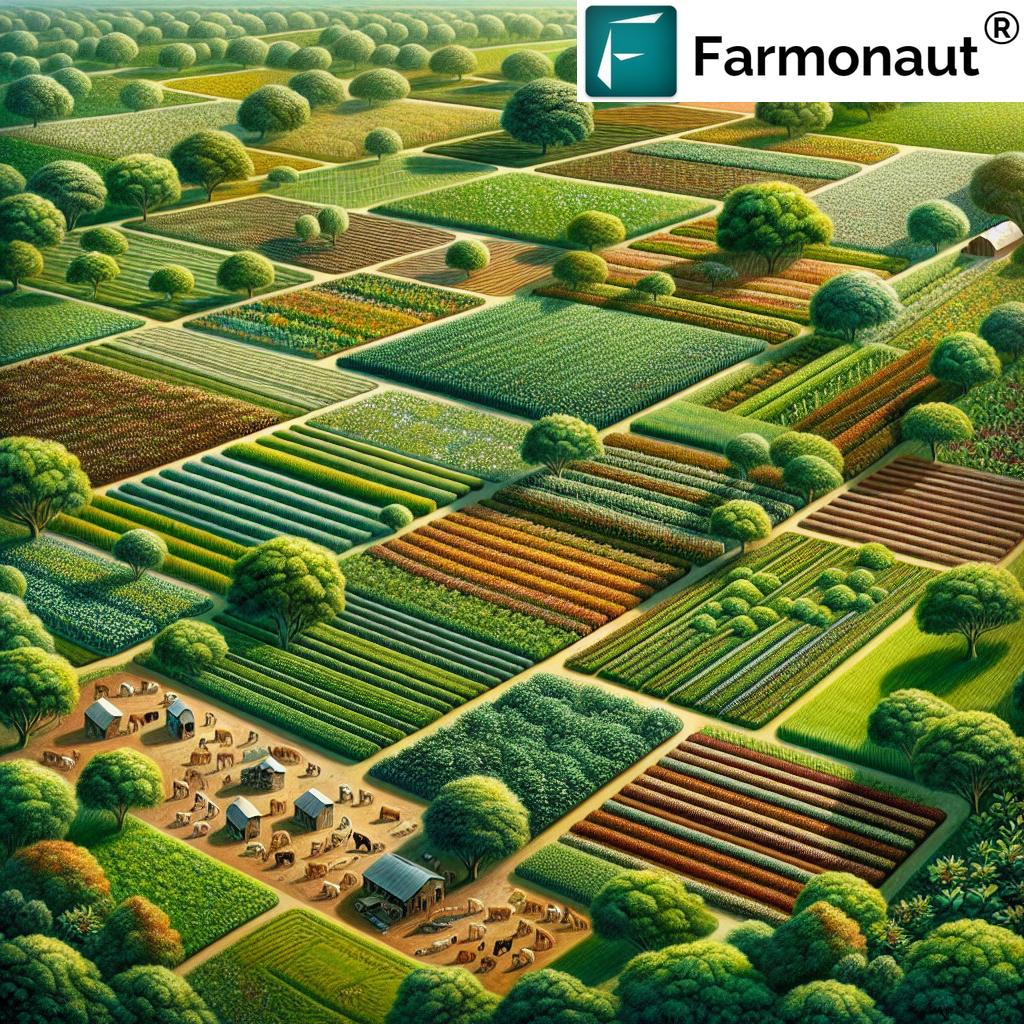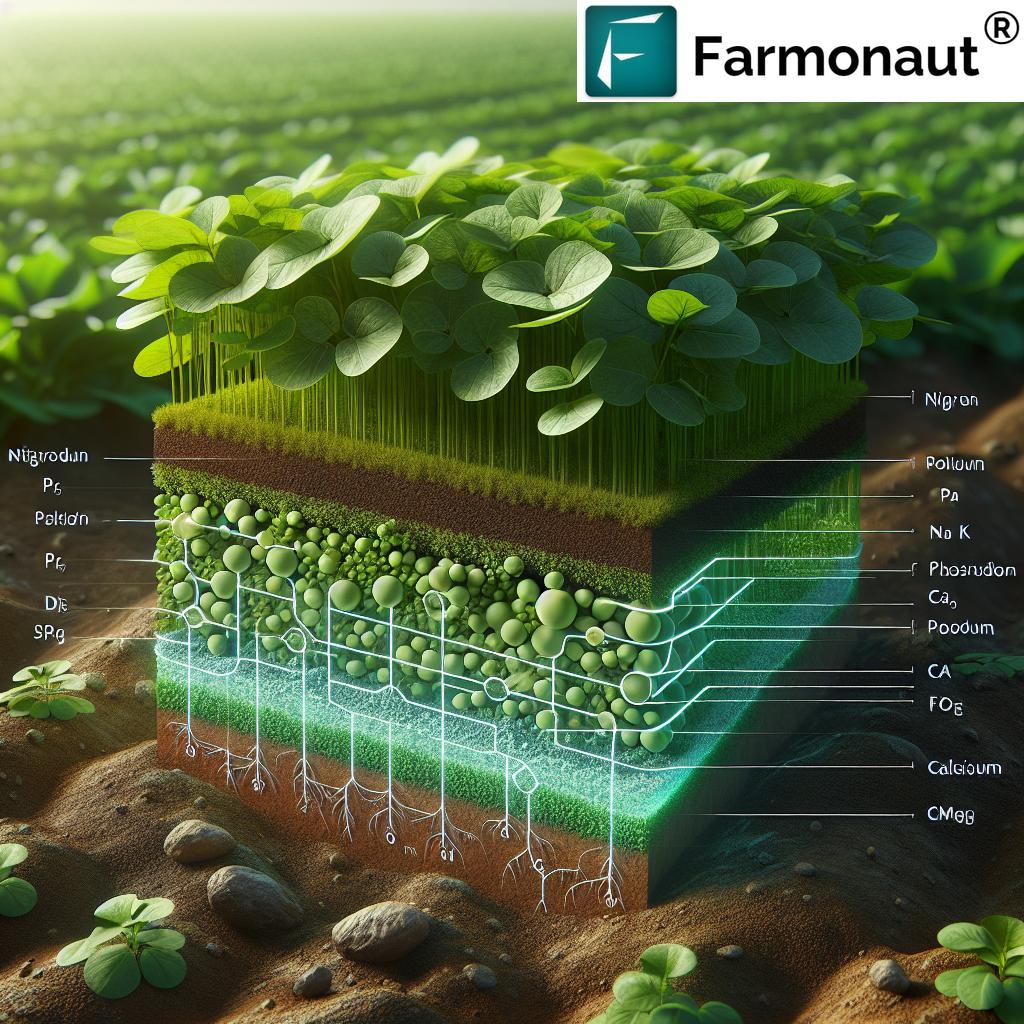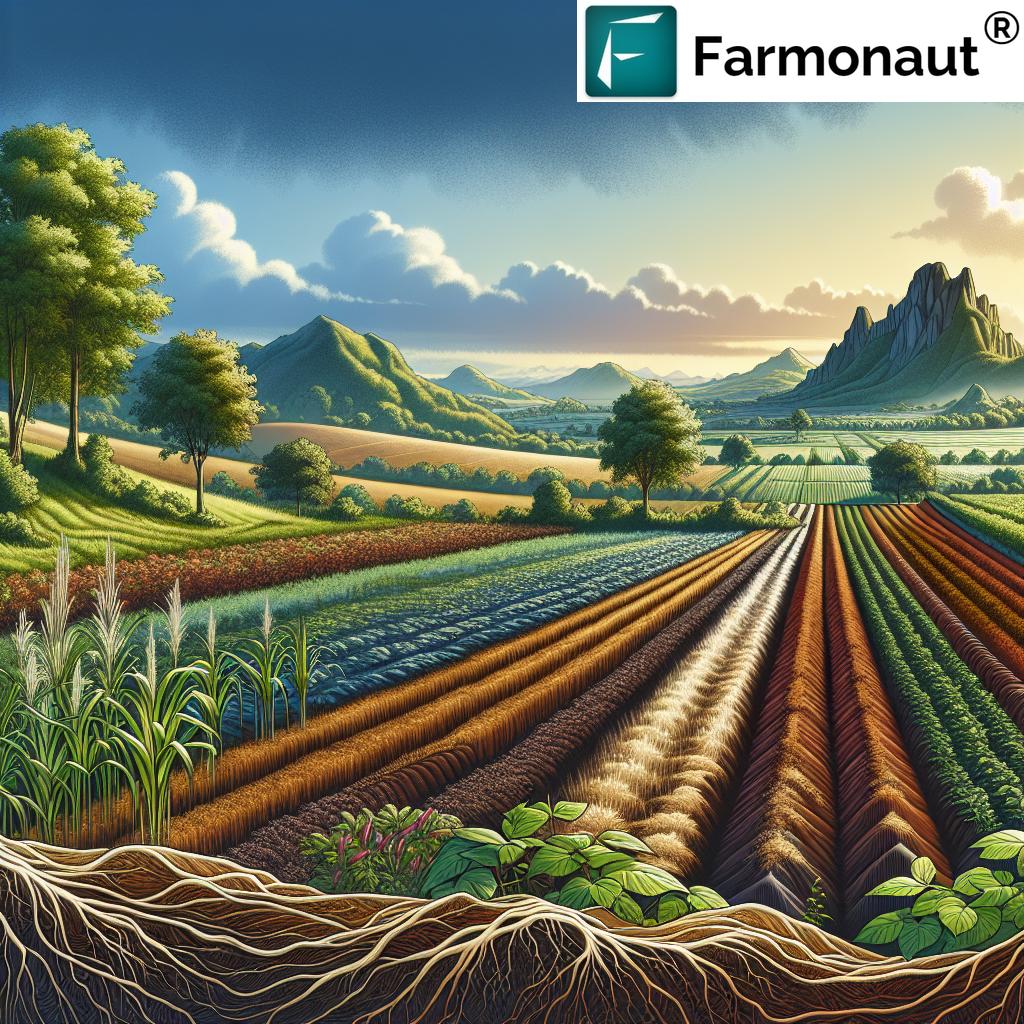Blockchain for Product Traceability: Boost Food Trust
“Over 20% of global food recalls are due to traceability issues—blockchain can reduce this by up to 80%.”
Introduction: Why Blockchain for Product Traceability Matters
In a world where food safety and consumer trust are paramount, the ability to track each product’s journey from farm to fork is more critical than ever. The rise of blockchain in agriculture is transforming how agricultural supply chain transparency is achieved, bridging gaps that once allowed fraud, inefficiency, and quality issues to thrive. By integrating blockchain technology into every stage of the food supply chain, we as stakeholders—ranging from farmers to corporations and end consumers—gain unmatched transparency, efficiency, and accountability.
At Farmonaut, we believe that advanced blockchain-based traceability solutions are the future of food safety and sustainable agriculture. Through a combination of decentralized ledger technology, satellite imagery, and AI-driven advisory tools, it’s now possible to address key challenges like contamination risks, fraud prevention, fair payments, and regulatory compliance with greater ease than ever before.
In this comprehensive guide, we’ll explore:
- The core concepts behind blockchain in the agricultural context
- Its transformative benefits for traceability, food safety, and trust
- Key applications and examples worldwide
- Major implementation challenges and potential solutions
- How Farmonaut’s platform opens new doors for scalable, affordable, and transparent farming operations
Understanding Blockchain in Agriculture: The Foundation of Trust and Transparency
To fully appreciate the benefits of blockchain for product traceability, it’s essential to understand what blockchain technology is—and how it fits into agriculture.
What is Blockchain?
Blockchain is a type of distributed ledger technology (DLT) that records transactions across a decentralized network of multiple computers. Unlike traditional databases where a single entity manages the data, blockchain ensures that every record (often called a “block”) is secured through cryptography and linked together, creating an immutable and transparent chain. This means:
- Each transaction added to the blockchain is permanent and tamper-proof
- No single party can alter or delete data without consensus
- All stakeholders can access the same, accurate information in real time
In the context of agricultural supply chains, this technology is a game-changer. Blockchain facilitates the recording of every major step and movement—from planting, harvesting, processing, to distribution. As a result, every participant, from farmers and agribusinesses to consumers and authorities, benefits from consistent and reliable data.
How Blockchain Applies to Agriculture
Here’s how blockchain enables traceability in agriculture:
- Every participant has access to the same version of the “truth” regarding a product’s journey
- Immutable records foster accountability—no party can falsely alter information about origin, quality, or safety
- Decentralization eliminates single points of failure and reduces dependency on manual oversight or potentially biased intermediaries
By fostering such a transparent, secure, and trust-based environment, blockchain is the ultimate foundation for food product traceability.
Key Benefits of Blockchain for Product Traceability
Let’s explore in depth how blockchain in agriculture addresses key traceability challenges and enhances every link in the food supply chain.
1. Enhanced Transparency and Trust
A transparent and immutable ledger allows all participants to monitor each product’s movement and transaction—from farm to supermarket shelf.
- Consumers can scan a QR code to instantly verify origin, production methods, harvest date, and even transport routes
- This not only helps builds trust but also fosters accountability across the supply chain
- Farmers, retailers, and regulators all access real-time, accurate data—reducing confusion and argument over product history
2. Improved Food Safety
When a foodborne illness outbreak occurs, rapid identification and response are crucial.
- Blockchain-enabled supply chain tracking technology allows swift tracing of the contaminated product’s path
- Authorities can identify and isolate affected batches within hours instead of days
- This improves safety, reduces risks, and minimizes both public health impact and unnecessary recalls
3. Efficient Supply Chain Management
Blockchain’s ability to automate processes through smart contracts overhauls traditional supply chain inefficiencies.
- No need for cumbersome paperwork or slow, manual record-keeping
- Automatic payments upon verified delivery or compliance with contract terms
- Decreased risk of disputes and reduced administrative costs
- Streamlined collaborations between farmers, distributors, processors, and retailers
4. Combating Fraud and Counterfeit Products
Preventing food fraud with blockchain is one of its most valuable features:
- Decentralized product tracking records every step in the journey, making it nearly impossible to introduce counterfeit products
- Consumers and businesses can verify authenticity before making or receiving a purchase
- Brand owners strengthen their reputation by proving product authenticity with data-backed evidence
5. Empowering Farmers
With true transparency and secure payment processes:
- Farmers receive fair compensation and timely payments—directly recorded on the blockchain
- Reduced dependency on intermediaries and protection against exploitative practices
- Greater ability to access financing, insurance, and market opportunities using trusted, verifiable data
Applications of Blockchain in Agricultural Supply Chains
The role of blockchain in agriculture goes far beyond just recording data. Let’s break down key applications:
Product Tracking: The Heart of Traceability in Agriculture
With blockchain, detailed and secure tracking of products through every stage becomes the new standard.
- Each time a product changes hands (from farmer to processor to retailer), a new, immutable record is added to the ledger
- This holistic approach ensures transparency and upholds food safety by making source identification rapid and accurate
Blockchain and Smart Contracts in Agriculture
Smart contracts—self-executing contracts written as computer code—bring automation and efficiency:
- Payments are triggered automatically once contract terms (like receipt of goods or compliance with quality standards) are met
- Reduces errors and minimizes fraud linked to manual paperwork
- Slashes transaction costs by removing the need for multiple intermediaries
Sustainability and Environmental Impact Monitoring
Consumers and regulators demand more information about sustainable agricultural practices and environmental impacts:
- Blockchain tracks data on farming methods, input usage, and carbon footprints
- Transparency helps promote sustainable practices, reduces fraud claims, and aligns with goals for safer, environmentally-friendly products
Farmonaut offers a dedicated Carbon Footprinting module that helps agribusinesses and food companies monitor and reduce their environmental impact, directly supporting global sustainability initiatives.
Fleet and Resource Management
Efficiently managing logistics is vital in modern agriculture.
With solutions like Farmonaut’s Fleet Management tools, agribusinesses can track agricultural assets in real time, optimize routes, reduce operational costs, and ensure safe, timely deliveries. When combined with blockchain-based traceability, every movement of goods is securely and transparently recorded.
Access to Financing and Risk Reduction
By providing verified, satellite-backed proof of crop health and farm activity, Farmonaut’s crop loan and insurance solution (learn more here) streamlines the process for banks and insurance companies. Blockchain-backed data severely reduces risks of fraudulent claims while accelerating loan approvals, improving access to essential financial support for farmers.
Ensuring Consumer Trust through Blockchain Traceability Solutions
Our Traceability platform (see details) directly connects all participants. This means that whether you are a farmer, wholesaler, retailer, or end consumer, you can fully track the history and journey of each product—ensuring safety, authenticity, and transparency.
Comparison Table: Traditional vs. Blockchain-Based Agricultural Supply Chains
| Aspect | Traditional Supply Chain | Blockchain-Based Supply Chain |
|---|---|---|
| Data Transparency | Manual, fragmented records; limited access; risk of errors or manipulation | Full, real-time transparency; all participants access immutable, decentralized ledger |
| Traceability Speed | Up to several days; prone to bottlenecks and missing links | Up to 90% faster traceability; instant product history retrieval through QR code |
| Risk of Fraud | High; vulnerable to counterfeit products, data forgery, and hidden transactions | Reduced fraud risk by an estimated 60%; records cannot be tampered with |
| Cost Efficiency | High operational costs due to intermediaries, paperwork, and delays | Lower transaction & admin costs; automation via smart contracts; less need for intermediaries |
| Implementation Complexity | Easier for legacy systems; slow to adapt to changing needs | Higher initial setup and training required; scalable, flexible for future growth |
| Consumer Trust | Variable; limited ability to verify product origin or quality | Significantly higher; consumers verify authenticity and origin before purchase |
“By 2027, blockchain in agriculture is projected to reach a market value of $1.4 billion worldwide.”
Farmonaut: Next-Gen Precision Agriculture & Blockchain-Based Traceability
At Farmonaut, our mission is to make precision agriculture and advanced supply chain tracking technology accessible to farmers globally through a unique suite of data-driven solutions:
- Satellite-Based Crop Monitoring: Real-time, multispectral satellite images deliver actionable insights on vegetation health, soil moisture, and pest risks.
- AI Advisory (Jeevn AI): Our AI-powered assistant offers weather forecasts and personalized crop management, boosting efficiency and productivity.
- Blockchain-Based Product Traceability: Every step of a product’s journey—from planting to retail—is transparently recorded on our secure, decentralized platform, enhancing trust for all stakeholders (read more on Product Traceability).
- Resource & Fleet Management: Efficiently manage logistics, harvest scheduling, and machinery on large-scale farms as well as agribusiness fleets.
- Carbon Footprinting: Our dedicated tool (see Carbon Footprinting) empowers businesses to monitor and reduce environmental impacts for sustainable agriculture.
- API Access & Integration: Easily integrate our API and detailed Developer Docs into your own digital agricultural systems to unlock scalable, automated solutions.
Our solutions are accessible via Android, iOS, and web/browser app, making it simple to track and manage farms of any size, anywhere in the world.
Challenges to Blockchain Adoption in Agriculture
While the benefits of blockchain-based traceability are compelling, several critical challenges must be considered for widespread adoption.
1. High Implementation Costs
Deploying blockchain solutions requires upfront investment in technology and training. For many smallholder farmers, these costs may be prohibitive. Efforts to democratize access, such as Farmonaut’s affordable, subscription-based model, are vital in overcoming this barrier.
2. Technological Complexity
Blockchain platforms integrate advanced algorithms, APIs, and sometimes specialized hardware. The learning curve, especially in regions with limited IT infrastructure, must be addressed through targeted education and user-friendly interfaces.
3. Interoperability Issues
Many agricultural systems use different software standards, making seamless blockchain integration a challenge. Collaborative industry-wide approaches and open APIs (like those offered by Farmonaut) are crucial for improving interoperability.
4. Data Privacy and Security Concerns
While blockchain is transparent, this transparency can sometimes conflict with the need for privacy. Farmers and agribusinesses must ensure sensitive information is protected, with strict access controls and data minimization strategies.
5. Regulatory Uncertainty
Governments worldwide are still developing legal frameworks governing blockchain in agriculture. The lack of clear regulations can create uncertainty for all stakeholders. Continuous engagement between technology providers, policymakers, and the farming community will be key to setting robust and fair standards.
“Over 20% of global food recalls are due to traceability issues—blockchain can reduce this by up to 80%.”
Real-World Examples: Blockchain’s Role in Agricultural Traceability
Continuous innovations in countries like India, Vietnam, and the US are validating blockchain’s potential:
- IBM Food Trust: Improves food product traceability for major global suppliers and retailers, ensuring swift responses to contamination events and supporting food recall management.
- TE-FOOD in Vietnam: Tracks livestock and fresh produce to enhance food safety, benefiting thousands of companies and consumers.
- Ripe.io: Empowers the entire supply chain—farmers, processors, and retailers—to confidently track product journeys and prove claims around quality and sustainability.
These real-world instances reinforce how blockchain adoption, though still evolving, is delivering tangible impact on global food trust and transparency.
For those managing large farms, cooperatives, or plantation operations, Farmonaut’s Large Scale Farm Management solutions combine satellite monitoring, AI, and blockchain to provide comprehensive oversight, better risk management, and improved compliance with global food safety regulations.
Future Outlook: Blockchain in Agriculture, Traceability, and Food Trust
The future of food product traceability will be shaped by continued evolution in blockchain, AI, and geospatial technology. With consumer and regulatory demands for food safety, authenticity, and sustainability increasing worldwide, innovative platforms like Farmonaut are essential for creating a resilient agricultural system.
As we move toward a fully digital, decentralized agricultural value chain, the focus must remain on:
- Bridging the gap for smallholder farmers and cooperatives
- Addressing data privacy, security, and regulatory concerns
- Scaling up successful pilots and embracing cross-industry integration through open APIs
- Enhancing consumer trust through transparency, education, and easy-to-access blockchain-backed platforms
- Promoting environmentally responsible practices using credible data on carbon footprints and resource use (learn more: Farmonaut’s Carbon Footprinting)
For all stakeholders, from policymakers to village-level farmers, adopting blockchain is not just about technology—it’s about empowering people to make smarter, safer, and more sustainable choices with confidence.
Frequently Asked Questions (FAQ)
Q1: What is blockchain-based product traceability in agriculture?
Blockchain-based product traceability enables all stakeholders to track every stage of a food product’s journey—from the field to the consumer—on a secure, immutable ledger. This ensures transparency, rapid contamination identification, fraud prevention, and increases consumer trust by making product history easily verifiable.
Q2: How does blockchain enhance food safety and prevent fraud?
By recording every transaction and movement in a decentralized, tamper-proof ledger, blockchain empowers authorities and businesses to trace the source of contamination quickly, address outbreaks, and block the entry of counterfeit products. This greatly reduces the risk of food fraud and improves public health protection.
Q3: Are blockchain-based solutions expensive for small farmers?
While initial implementation may require investment in technology and training, innovative platforms like Farmonaut offer affordable, scalable subscription options. These enable farmers to access precision agriculture and traceability tools without the need for costly hardware or infrastructure.
Q4: Can blockchain platforms like Farmonaut integrate with existing agri-business systems?
Yes, Farmonaut provides an open API (see our Developer Docs) that allows easy integration with existing agri-software, ERPs, and digital record systems, ensuring interoperability and effective, organization-wide implementation.
Q5: What makes Farmonaut’s blockchain traceability solution unique?
Farmonaut combines satellite imagery, AI-powered advisories, and decentralized blockchain tracking—making it one of the only platforms that offers full-spectrum visibility over crop health, compliance, logistics, and end-to-end food traceability. This synergy ensures security, efficiency, and sustainability in modern agriculture.
Conclusion: Blockchain for Food Trust—A New Era in Agriculture
As global demands for transparency, efficiency, and trust in food supply chains intensify, blockchain technology stands out as a transformative enabler. By bringing together farmers, agribusinesses, authorities, and consumers on a single, immutable platform, we create safer, more authentic, and sustainable food systems—worldwide.
While challenges like implementation costs, technology complexity, and regulatory issues remain, platforms like Farmonaut are bridging the gap by making precision agriculture, supply chain traceability, and resource optimization affordable and accessible for all. Together, by embracing these solutions, we lay the foundation for a new era of food product traceability, supply chain transparency, and lasting consumer confidence.
Now is the time to harness the power of blockchain technology for farmers, businesses, and communities everywhere. Whether you are seeking to reduce risks, improve authenticity, or enhance sustainability, advanced traceability platforms like Farmonaut are the catalyst for positive change in modern agriculture.


